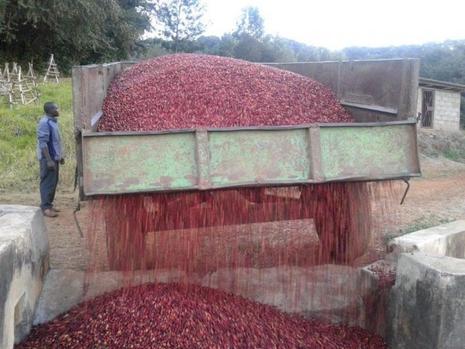The two commodities, which are fetching higher export prices, are on the rebound in the country.
Source: Zim farmers smell the tea and coffee | IOL Business Report
INTERNATIONAL – Farmers in Zimbabwe’s Eastern Highlands are smelling the tea and coffee.
The two agricultural commodities, which are fetching higher export prices, are on the rebound owing to the potential they give to Zimbabwean farmers and companies to earn foreign currency in a country battling a financial squeeze. Most farmers have been taking up tobacco, but this year’s crop has been fetching lower prices. In the Eastern Highlands region near the border with Mozambique, coffee and tea growing is becoming profitable once again.
Tea growing companies in Zimbabwe include Tanganda Tea Company, run by ZSE-listed Meikles, while horticultural concern, Ariston Holdings is also another tea growing company in addition to a handful of co-operatives of local farmers. “Tea production for the six-month period to March 31 improved by 6percent to 1851 tons,” said Paul Spear, the chief executive of Ariston Holdings.
The company said export prices were strong and favourable for its operations. Any company or business operation that generates forex in Zimbabwe is considered better off at a time the local currency has continued to sag down. For Ariston, export sales volumes for tea during the review period strengthened by as much as 18percent, giving the company a much needed financial boost. Prices were also massively stronger too. “Average export prices improved by 13 percent,” said Spear.
Coffee is another crop that is starting to recover in the Eastern Highlands area. Farmers in the area have also received a fresh lease of life after Nespresso launched a coffee product from Zimbabwe last month, putting the country’s prospects and advantages back on the global coffee market.
“For farmers in Zimbabwe’s Eastern Highlands, coffee represents a ticket out of poverty – and farmers are paid in valuable US dollars, which go a long way in transforming the lives of smallholder producers,” said Technoserve, an organisation supporting coffee farmers in Zimbabwe through capacitation.
But the Chimanimani and Chipinge areas, where the crops are grown the most, were recently ravaged by Cyclone Idai and farm and irrigation equipment was destroyed. This has not been a deterrent with Ariston, which is also listed on the ZSE currently processing a $1.5million (R22.15m) insurance claim cover for the tea growing infrastructure that was destroyed.
Zimbabwe has a long history of coffee production and was once one of the producers of Africa’s most sought after coffee varieties. Coffee production from Zimbabwe peaked in the late 1980s, but dropped significantly in the early 2000s because of economic hardship and climate shocks as well as land grabs in 2000.

COMMENTS